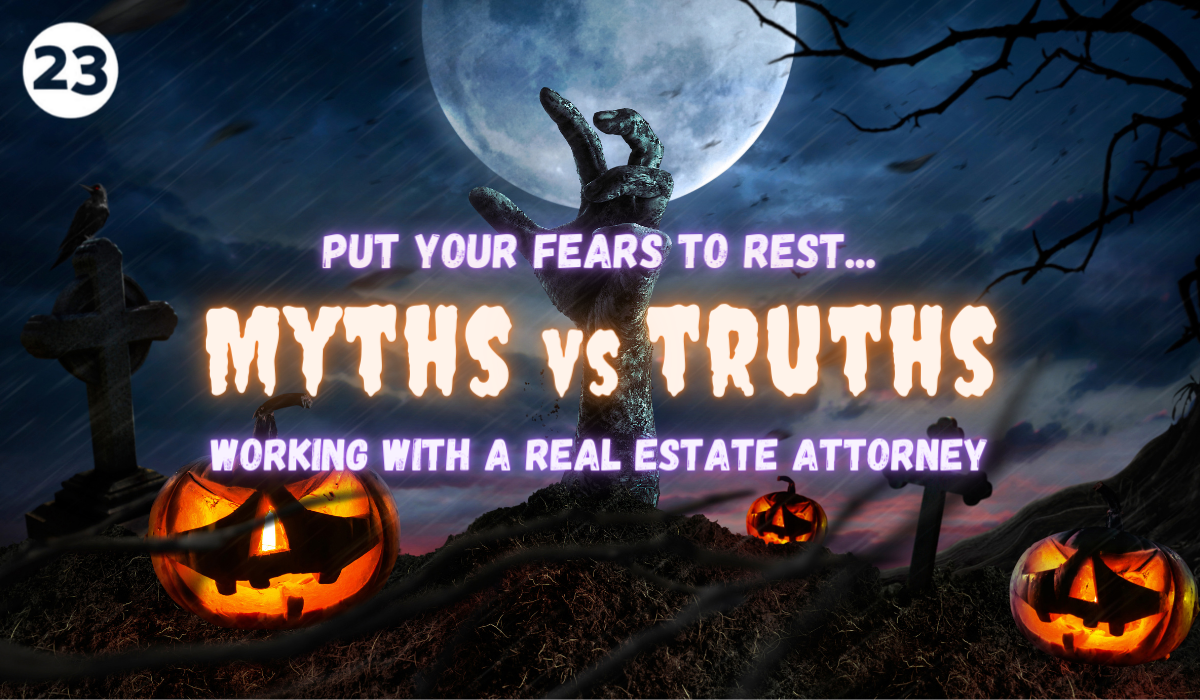When it comes to creating an estate plan or making updates to your will, it’s vital to keep your choice of “executor” current. This is an important decision that could make or break the success of your legacy and wishes.
As you know, an estate plan ensures that your assets and estate are split according to your wishes upon death. The person responsible for carrying out your wishes is known as the ‘executor,’ whom you nominate in your plan in advance. Choosing the best person for this job will help you maintain your legacy and make sure your affairs are handled properly after passing.
A responsible executor will also make the probate process easier and smoother, helping your beneficiaries. Choosing the right person and trusting them with your estate can be a tough decision and you may want to put off. Please don’t delay! 23 Legal is here with a guide to help you nominate the best candidate as your estate executor…
What is an Estate Executor? What Does the Executor Do?
An estate executor administers your estate per your instructions after your death. The executor can be a person, a bank, or a trust company. Their responsibility is to protect and manage your assets until they are transferred properly to any heirs or beneficiaries.
Estate Executor’s Responsibilities
This role is very important. Here are some tasks that an executor may perform:
- Filing the will for the probate process
- Getting the letters testamentary from the court – a legal document that authorizes the executor to act on your behalf
- Inform creditors, beneficiaries, and all relevant parties of your death and that probate proceedings have started.
- Taking stock of all your assets and any liabilities
- Paying all debts, taxes, and expenses that you have outstanding and collecting any income or benefits pending
- Selling or splitting property according to your will’s conditions or the law
- Filing income tax or inheritance tax returns
- Recording all your final estate transactions and presenting them to the court
- Closing the estate once all assets have been distributed
The Importance of an Estate Executor
The executor is critical, as they have a lot of responsibility on their shoulders. They need to honor your wishes and manage your estate. This also comes with legal and fiduciary duties. This means that they must act in your and the estate’s best interests. They can face legal consequences if there’s any fraud or misconduct. Hence, it’s a job that can’t be taken lightly, and you need to choose someone extremely responsible and dependable for the task!
The executor can also influence the probate process – how long it will take or how much it will cost. They can do so by managing all tasks efficiently. Showing up on time during court proceedings, ensuring no mistakes, and effectively communicating with all stakeholders is not easy. Inefficiency can lead to legal disputes and conflicts between beneficiaries, which will increase costs for the estate.
What Should You Consider When Selecting An Executor?
When deciding on an executor for your estate, be sure to consider the following factors…
The complexity and size of your estate
If your estate is large and complicated, it is better to choose an experienced executor. They should know the legal, financial, and tax issues involved. The executor must have the time to give attention to your expansive estate.
On the other hand, with a simple small estate, you can choose an executor without these qualifications. They still need to be someone reliable who you can trust with this huge responsibility.
The location and availability of the executor
The person you nominate should officially belong to the same state as you. It allows them easy access to your property, accounts, and public records. They will also have to visit the local court for proceedings, which will be hard if they live in another state.
Inheritance and estate laws may also be different between states. Having someone local will help in that regard. The probate process is also stressful and time-consuming, so you should choose someone who has time and is willing to take on the role. We also advise nominating a second executor in case your first choice is unavailable.
The relationship and communication skills of the executor
Your executor must have exceptional communication skills and an amicable relationship with all beneficiaries and stakeholders. When choosing a family member or friend, see whether they get along with the other heirs and can manage disputes effectively. As executors, they must also communicate respectfully with the court and other institutes.
The fees and expenses of the executor
Some people opt for professionals – lawyers or accountants—or institutions such as banks as their executors. If you also choose to do so, consider how much they will charge you for their services. Look for reviews, seek references, and consider their credentials and client testimonials before choosing.
You can also nominate a non-professional executor, someone who is family, or a friend. In that case, too, you need to compensate them for their time and effort. They can claim their fees or accept the alternative compensation you offer them. You’ll also need to account for any extra administrative expenses they may have during the process.
Consult Estate Planning Attorney Ben Weaver of 23 Legal
Choosing the right executor is essential. If you’re nominating someone, consult expert real estate attorney, Ben Weaver. Not only can he help you choose your executor, but he can also help draft your will and revise your estate plan. No matter your estate planning goals, 23 Legal is here to help you navigate the many complexities of estate law, probate law, and more!
We are proud to provide affordable, thorough legal services to individuals and families throughout Chicagoland. Contact us today to schedule an estate planning consultation to learn how we can help you.
Need professional guidance with estate planning? We’ve got you covered!
Accomplish your goals with 23 Legal: (847) 447-6004
Why Choose 23 Legal
23 Legal offers Real Estate and Estate Planning legal services to individuals, families, community associations and small business owners throughout Chicagoland. We know how intimidating “the law” can be. In fact, when most people think of law offices, they think of stuffy leather chairs, huge wooden desks and pompous lawyers who charge outrageous fees. That’s not us! We believe in 1-to-1; the same lawyer should work with you all the way through. Whether you have an estate planning issue, family trust concern, or you have a legal problem in regard to a new home, business, real estate or remodel, you need a lawyer who cares. That’s where Ben comes in! We are great listeners; more than that, we are lawyers who believe that our clients always come first.




